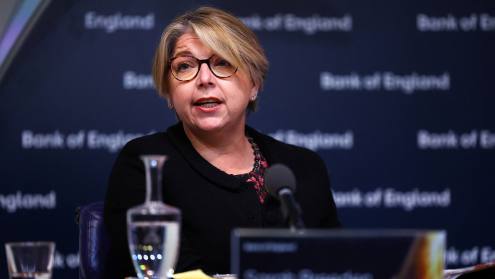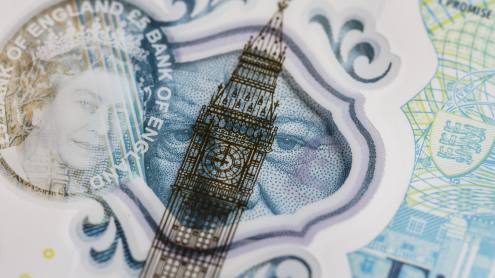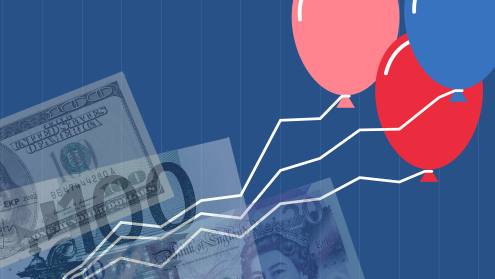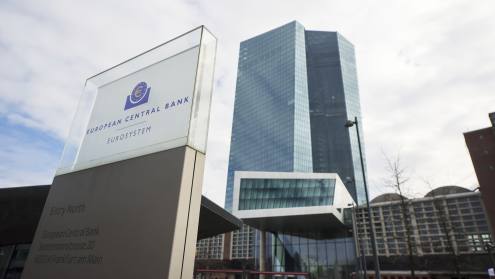This year, the central bank of Colombia – Banco de la República (Banrep) – celebrates its centenary amid enormous challenges for central banks and great uncertainty about the future of macroeconomic and geopolitical conditions around the world.
Established on July 23, 1923, Banrep has become the cornerstone of Colombia’s macroeconomic policy framework. As an independent central bank since 1991, it successfully implemented an inflation-targeting regime, which has helped Colombia overcome the double-digit inflation levels that were common in the country prior to the 2000s, and has set an annual inflation target long-term rate of 3% that is still in force today.
This monetary regime is part of a very strong macroeconomic framework in the country, which also includes solid financial regulation and supervision that follow international standards and a robust fiscal institutionality that encompasses a fiscal rule and an independent fiscal rule committee.
A return to growth
Like many other economies, Colombia has faced a sharp increase in inflation starting in 2021 because of numerous supply shocks, both domestic and external, and excess demand. The Colombian economy recovered rapidly from the Covid-19 pandemic and continued to post high growth rates, even after reaching a higher level of economic activity than in the pre-pandemic period. After growing 11% in 2021, the Colombian economy grew 7.3% in 2022, one of the fastest growth rates among emerging markets and even comparable globally.
In addition to the dynamics of domestic demand and supply shocks, inflation has been especially high and persistent as a result of the withdrawal of price relief measures implemented during the pandemic, a major national strike in 2021, the effects of indexation and the depreciation of the Colombian peso after the economy lost its investment grade rating from two major agencies, also in 2021. With this, headline inflation has been one of the most persistent in the region, reaching 11.78% in July after reaching a maximum of 13.3% in March 2023, and food inflation has been particularly high compared with international figures, reaching more than 27% by the end of 2022, although it has adjusted downwards to 13.2% in July.
In this context, Banrep’s board of directors has followed a very restrictive monetary policy since September 2021, increasing the interest rate by 11.5 percentage points since then. This is the most significant increase since the bank implemented the inflation targeting regime, and is among the strongest tightening processes among emerging and advanced markets, even during a period of global interest rate increases.
The effects of monetary policy on domestic demand, imports, credit and inflation are already materialising. Due to more restrictive financial conditions, domestic demand has started to contract after two years of very dynamic growth. Imports are falling significantly, domestic credit is slowing, and, most importantly, inflation is receding and is expected to end 2023 below 9%. Looking ahead, the tightening of monetary policy and the consequent economic slowdown will favour the correction of excess demand, allowing the Colombian economy to consolidate a downward trend in inflation and reach a more sustainable growth rate.
Inflation trajectory
Despite the strong inflationary shock, inflation expectations have remained contained, which shows the credibility the central bank has built over the past few decades. Even with headline inflation 10 percentage points above our target, two-year inflation expectations remained around or below 5%, which demonstrates the confidence of economic agents in the ability to bring inflation down to target.
However, certain characteristics of the Colombian economy add uncertainty to the future trajectory of inflation. On the one hand, prices in the Colombian economy have a high degree of indexation, a characteristic inherited from the episodes of high inflation during the last three decades of the 20th century. For example, the minimum wage, pensions and leases are adjusted every year based on the previous year’s headline inflation, creating additional challenges for monetary policy.
We remain committed to our price stability mandate to bring inflation back to the 3% target.
In addition to indexation, local fuel prices are rising (after being frozen from 2021 until July 2022) to align with international levels, creating further price pressures at a time when inflation is expected to begin converging towards the target. Finally, there is still uncertainty about the strength and duration of El Niño, which could generate additional pressures on domestic food and energy prices.
Despite the significant challenges and risks of the inflationary outlook, we are acting resolutely to fulfil the bank’s price stability mandate. This strong economic policy framework has served Colombia well in the past, allowing it to successfully navigate other periods of high inflation or economic slowdown. At the current juncture, we remain committed to our price stability mandate to bring inflation back to the 3% target, following a data-driven approach that minimises impacts on economic activity.
Beyond monetary policy
The central bank has a substantial role in the daily life of Colombians through activities that extend beyond price stability and monetary policy. Banrep is at the centre of the country’s financial and payment infrastructure. Besides acting as the lender of last resort of the banking system and as the manager of the nation’s foreign reserves of almost $60bn, it manages the electronic trading system, the sovereign debt transaction market and the large-value payment infrastructure.
Banrep is also working hand in hand with the private sector to provide the economy with an instant payment system. A forum was created in 2022 for that purpose and the bank is developing the required technology to produce an interoperable, secure and efficient instant payments system with existing financial institutions that will foster competition and innovation in the Colombian economy, facilitating transfers between companies and individuals.
The central bank is also recognised for the quality of its economic research, which keeps up with the global trends while supporting relevant debates in the local context. Based on its academic publications, Research Papers in Economics ranks the research division of the central bank as the best in the country and among the best among central banks in Latin America.
Banrep also has a key role in Colombia as the guardian of cultural heritage. Although this is an atypical responsibility for a central bank, it is clearly established in Colombia’s constitution and gives the central bank important recognition among its citizens. The institution currently manages the widely-recognised Gold Museum in Bogotá, together with six other gold museums, the largest network of public libraries, impressive art museums and a very active musical and cultural life in 29 cities across the country.
The central bank is recognised as an exemplary institution in Colombia thanks to its transparency, corporate governance and independence, and for the technical rigour that characterises its staff and the decision-making process of its board of directors. The autonomy of the central bank will continue to play a crucial role in the future of monetary policy and the price stability mandate, guaranteeing the stability of the financial system, facilitating the developments of the payment system, and fostering the stability of the Colombian economy, while maintaining a very important role in managing the nation’s cultural heritage.
Leonardo Villar is governor of Colombia's central bank, Banco de la República.












